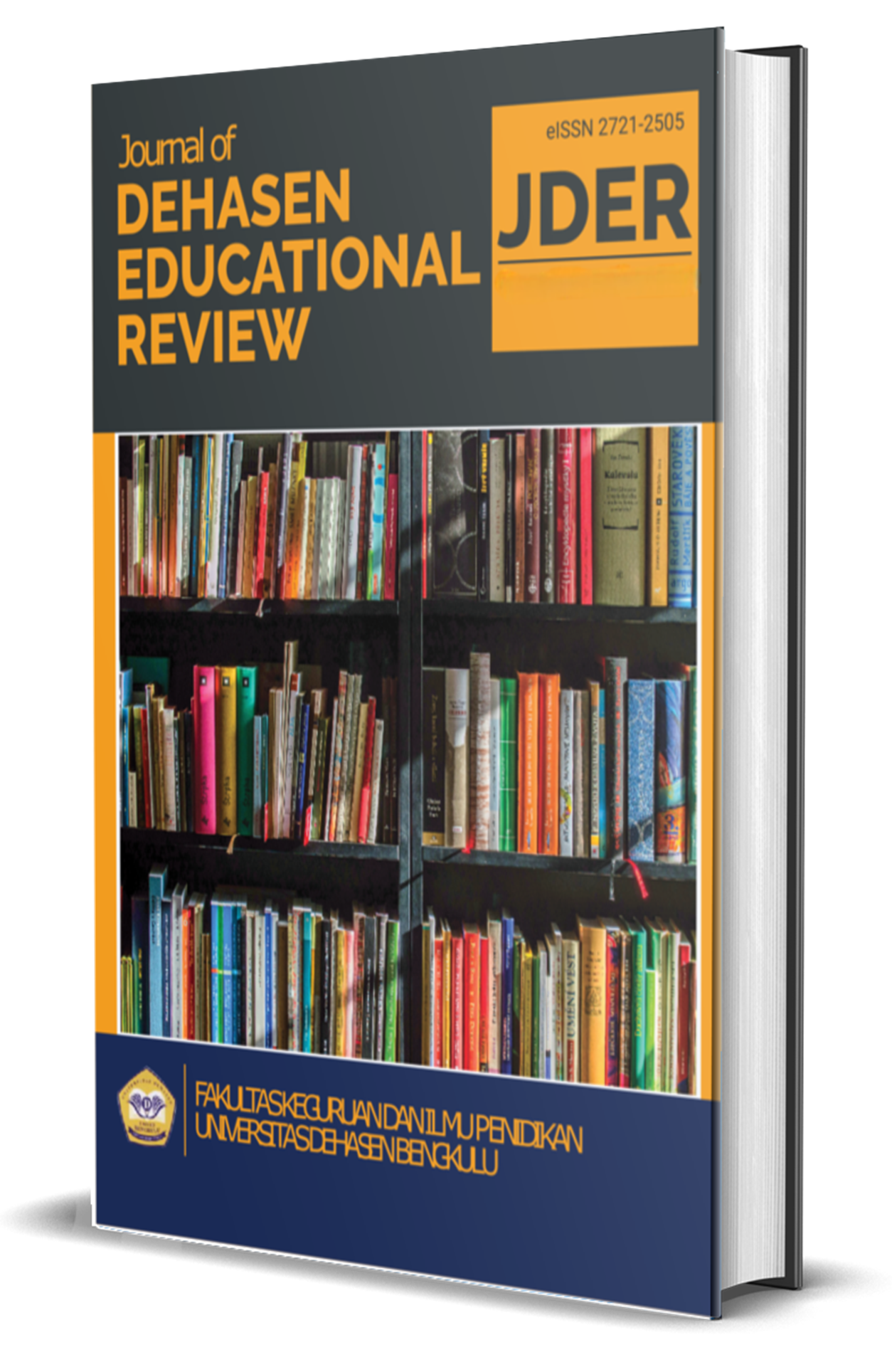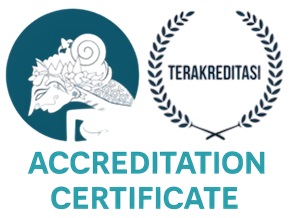Peran Guru Dalam Manajemen Pembelajaran Proyek Berbasis Kewirausahaan Di Tkit Baitul Izzah Kota Bengkulu
Abstract
This study aims to describe the role of teachers in managing entrepreneurship-based project learning at Baitul Izzah Kindergarten (TKIT) in Bengkulu City, including the strategies implemented, the challenges faced, and their impact on the development of children's creativity and entrepreneurial spirit. This study used a descriptive qualitative approach with data collection techniques through observation, interviews, and documentation. The results indicate that teachers implemented project learning management through the planning, implementation, and evaluation stages, taking into account success indicators, namely creativity, cooperation, independence, problem-solving, responsibility, and understanding of entrepreneurial concepts. The strategies implemented by teachers included dividing students into small groups, using simple media, intensive mentoring, and adjusting activity schedules to address challenges such as limited resources, time, and differences in children's abilities. The implementation of entrepreneurship-based project learning had a positive impact on the development of children's entrepreneurial skills, enhancing creativity, critical thinking, cooperation, independence, and responsibility. This study confirms that the active role of teachers is crucial to the success of project learning and the development of children's entrepreneurial spirit from an early age.
Downloads
References
2. Bogdan, R. C., & Biklen, S. K. (2019). Qualitative research for education: An introduction to theories and methods (6th ed.). Boston, MA: Pearson.
3. Creswell, J. W. (2019). Research design: Qualitative, quantitative, and mixed methods approaches (5th ed.). Thousand Oaks, CA: Sage Publications.
4. Darling-Hammond, L., Flook, L., Cook-Harvey, C., Barron, B., & Osher, D. (2020). Implications for educational practice of the science of learning and development. Applied Developmental Science, 24(2), 97–140. https://doi.org/10.1080/10888691.2018.1537791
5. Fadilah, N., & Ananda, R. (2021). Manajemen pembelajaran anak usia dini dalam perspektif kurikulum PAUD. Jurnal Obsesi: Jurnal Pendidikan Anak Usia Dini, 6(1), 112–123. https://doi.org/10.31004/obsesi.v6i1.112
6. Hidayati, S. (2019). Pendidikan anak usia dini: Pengembangan kreativitas dan karakter. Jakarta: Prenadamedia Group.
7. Kementerian Pendidikan, Kebudayaan, Riset, dan Teknologi. (2022). Panduan Kurikulum Merdeka untuk PAUD. Jakarta: Kemdikbudristek.
8. Lestari, D. (2023). Efektivitas pembelajaran proyek berbasis kewirausahaan terhadap kreativitas anak usia dini. Jurnal Pendidikan Anak, 8(1), 45–56. https://doi.org/10.12345/jpa.v8i1.456
9. Merriam, S. B., & Tisdell, E. J. (2020). Qualitative research: A guide to design and implementation (4th ed.). San Francisco, CA: Jossey-Bass.
10. Nugroho, A. (2022). Konstruktivisme sosial dalam pembelajaran anak usia dini. Bandung: Alfabeta.
11. Pratiwi, F. (2023). Pengembangan kompetensi wirausaha melalui pembelajaran proyek di PAUD. Jurnal Pendidikan Kreatif, 5(2), 78–88. https://doi.org/10.54321/jpk.v5i2.788
12. Putri, A., Sari, R., & Rahman, T. (2020). Pembelajaran berbasis proyek untuk anak usia dini: Studi kasus di PAUD Kota Bengkulu. Jurnal Pendidikan Anak Usia Dini, 7(1), 12–23. https://doi.org/10.31004/obsesi.v7i1.123
13. Rahmawati, N. (2022). Dampak pembelajaran kewirausahaan terhadap kreativitas dan tanggung jawab anak usia dini. Jurnal Kreativitas Anak, 4(1), 33–44. https://doi.org/10.12345/jka.v4i1.334
14. Sari, D. (2021). Implementasi pembelajaran proyek berbasis kewirausahaan pada PAUD. Jurnal Pendidikan PAUD, 3(2), 50–61. https://doi.org/10.12345/jpp.v3i2.506
15. Thomas, J. W. (2019). A review of research on project-based learning. San Rafael, CA: Autodesk Foundation.
16. Yuliana, N. (2023). Strategi guru dalam manajemen pembelajaran proyek di PAUD berbasis kewirausahaan. Jurnal Edukasi Kreatif, 6(1), 15–27. https://doi.org/10.54321/jek.v6i1.1527
Copyright (c) 2024 Mimpira Haryono, Suwarni Suwarni, Rita Prima Bendriyanti

This work is licensed under a Creative Commons Attribution-ShareAlike 4.0 International License.

This work is licensed under a Creative Commons Attribution-ShareAlike 4.0 International License.









